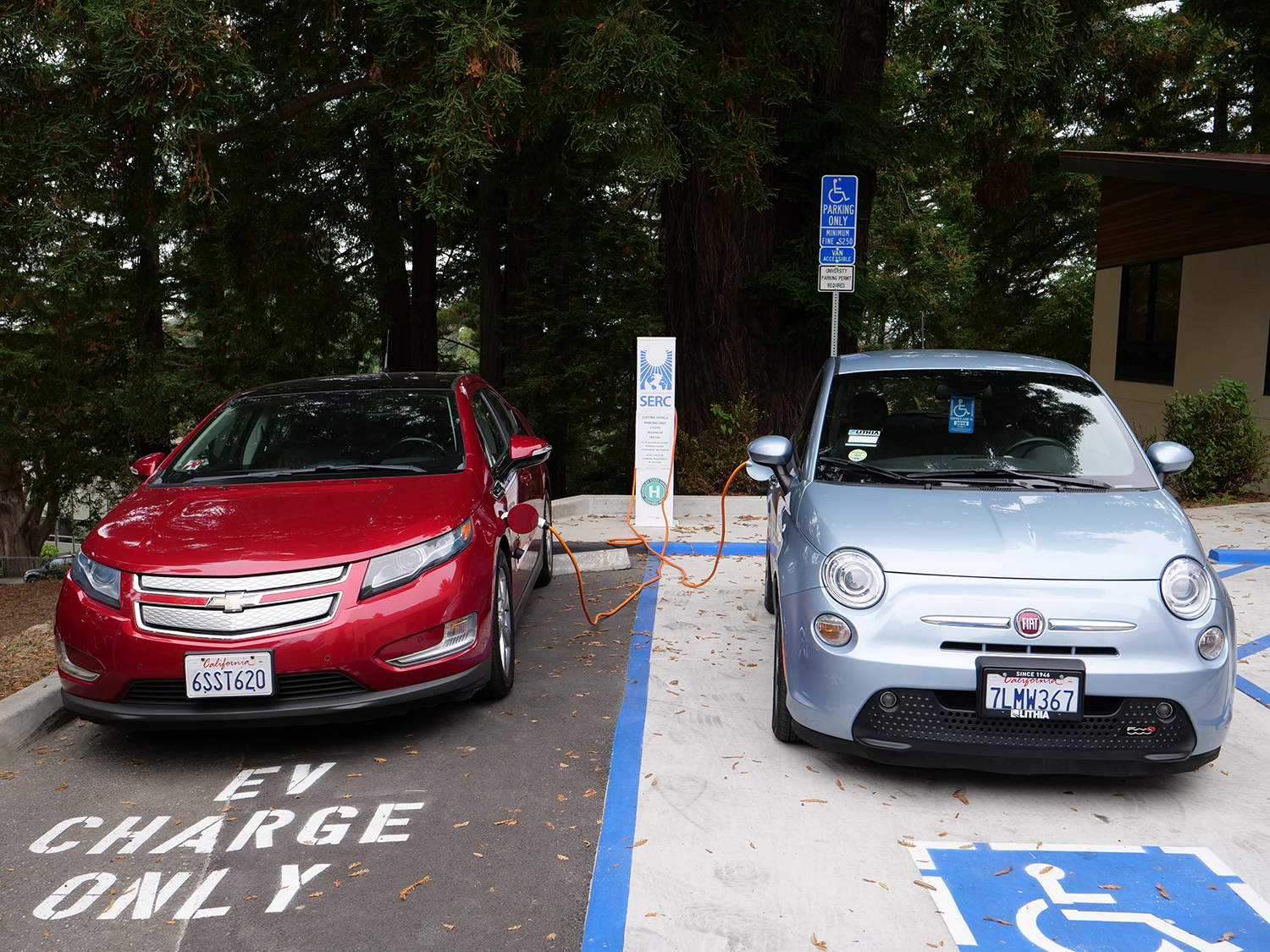HSU’s first electric vehicle station has already provided 60 “charge ups” in the month since fall semester began. Vehicles charged for an average of 2 hours, obtaining an average of 8 kWh of energy, up to a maximum of 31 kWh — and there were 16 times where the primary EV and the ADA parking spot were charging simultaneously.
Since the EV station was installed in early May, it has provided 126 charge ups, that powered 3,600 miles of travel, and avoided the combustion of 117 gallons of gasoline and the emission of 800 kg of CO2e.*
On October 11 at 5:30 pm in Siemens Hall 108, the Sustainable Futures Speaker Series will host a panel discussion on “Achieving 5 million zero-emission vehicles in California by 2030.” Experts from local planning, state regulation, mass transit, and advanced fuel infrastructure development will share strategies for achieving a zero-emission vehicle rollout on the north coast.

HSU’s EV charging station is located to the south of the Schatz Energy Research Center (across from the BSS building on the south side of campus). This station can provide charging for either of two adjacent parking spaces. One parking space is EV-only; parking here is limited to four hours, and the vehicle must be charging while parked. The second space is ADA parking (EV not required). HSU parking permits are required for both spaces.
*We assume a vehicle efficiency of 0.325 kWh/mi for EVs, and 31 mpg for gasoline vehicles. Carbon emissions are calculated using the gasoline carbon intensity of 8,815 g CO2e/gallon from EPA emission estimates, and HSU’s 2016 electricity carbon intensity of 192 g CO2e/kWh. (The electricity carbon intensity is the emissions rate associated with the power currently being purchased or generated by a particular source.)














